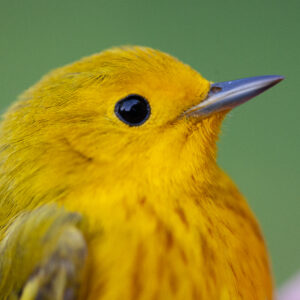Research Committee
The Iona Island Bird Observatory (IIBO) sits at an important location within the Pacific Flyway and at the mouth of the Fraser Valley Delta, a globally recognized Important Bird Area. Millions of birds pass through this region every spring and fall, often stopping over to recuperate energy reserves before continuing their migration. The Fraser River Estuary is also a rich breeding habitat for many species and an important area for wintering populations of birds that breed at high latitudes. For these reasons, IIBO offers the potential for some exciting research opportunities to dive deeper into the basic natural history of songbird species, the ecology and evolution of migratory systems, and the value of stopover habitats for conservation. In addition to 12 years of existing songbird migration monitoring data that will continue being added to, there is also strong potential for initiating new songbird projects that we have traditionally not focused on (e.g., feather isotopes), as well as venturing beyond birds to study the plants, insects, or overall community at Iona Island as a whole. The broad mandate of the Research Committee is to make results from our existing monitoring program publicly accessible through peer-reviewed research and popular science articles, as well as initiate topical research projects in collaboration with research students and scientists.
Our first step in this process involved analyzing the fat accumulation and stopover dynamics of migratory songbirds during spring and fall migration over a 10-year period. This study was published in the journal Ornithology and can be found here. Summaries of the project can be found on the Birds Canada website and in the fall 2022 issue of the BC Nature magazine. In short, however, we found that insectivorous, long-distance migrants, such as many warbler species, are particularly prone to environmental change and rely heavily on available resources at stopovers like Iona Island to replenish fuel reserves quickly and continue migration. There are some exciting future research directions stemming from this research, such as: 1) a community ecology approach to migration research, as we found evidence for density-dependent refueling rates or potential competitive interactions, and 2) an ecosystem-wide approach that evaluates trophic interactions between food availability, migration timing, and predation risk.
We are currently in the process of developing our research program and outlining a multi-year plan. This involves a potential graduate student scholarship program in partnership with BC Nature, so stay tuned to this space for future announcements. If you are a graduate student, Professor, or NGO/governmental scientist that has interest in the existing data or developing a new project at Iona Island Bird Observatory, please reach out to ddezwaan@wildresearch.ca to discuss ideas.
